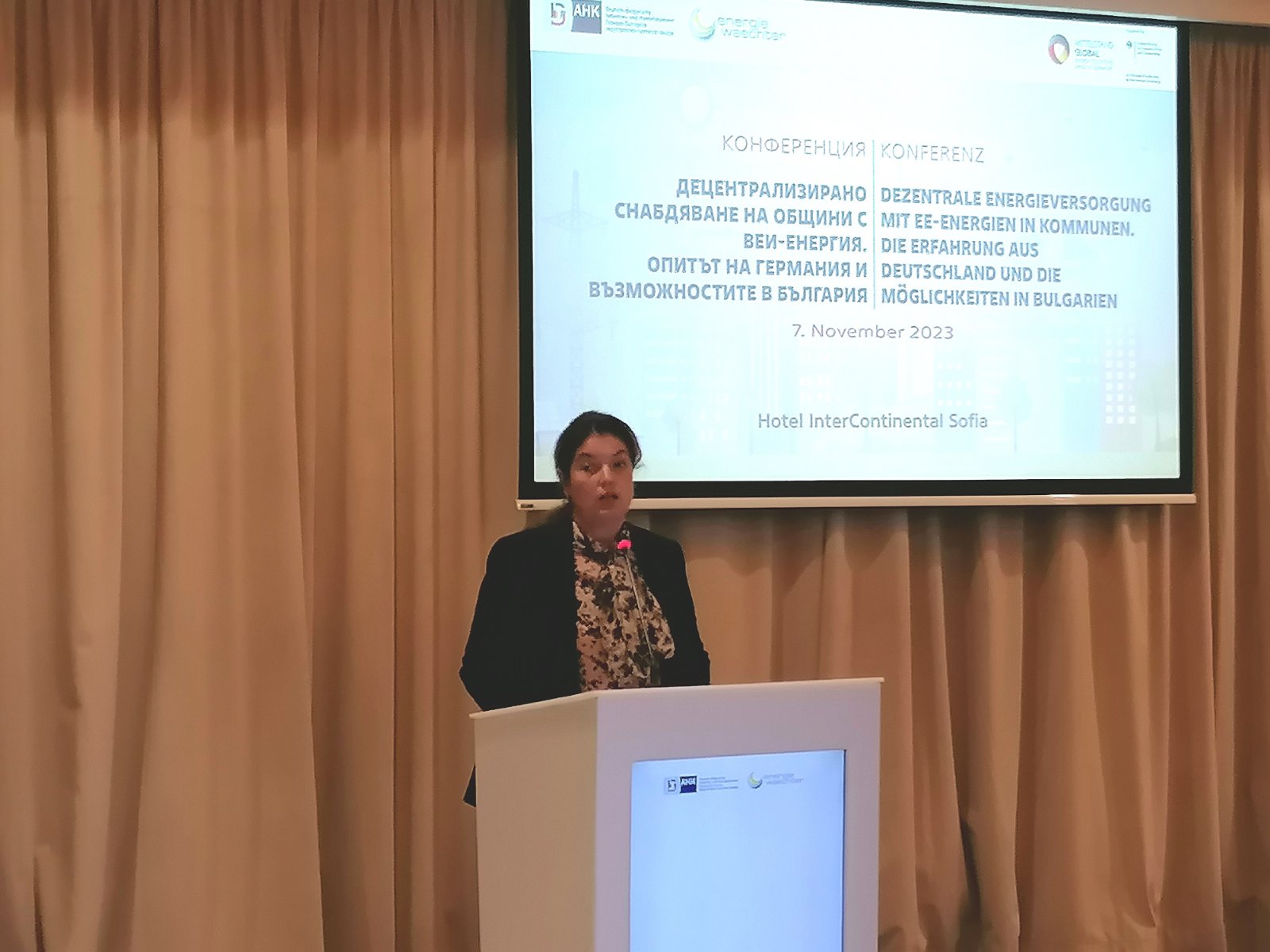Deputy Minister Petrova: decentralized renewable energy supply is key to meeting modern energy challenges
A number of German energy companies develop a successful business in our country
Decentralized renewable energy supply is one of the ways to address climate change, improve the competitiveness of the Bulgarian economy, provide secure and sustainable energy supplies for citizens and businesses, Deputy Energy Minister Iva Petrova said at the conference “Decentralized RES supply. Germany's experience and opportunities in Bulgaria”, which was held in Sofia.
Deputy Minister Petrova defined the holding of the conference as evidence of the commitment and successful cooperation of international political, academic and business sectors from EU Member States on key challenges. These include combating climate change, improving the competitiveness of economies, energy security and diversification of energy sources and the geopolitical environment.
The Bulgarian Deputy Minister commented that our country's national renewable energy policy is in line with the objectives and priorities of the European Union's energy and climate policy, respecting commitments made under international agreements and taking into account the state and development of the sector, the socio-economic and environmental aspects.
The Ministry of Energy has mobilized a substantial financial resource to support municipalities in implementing a number of projects related to renewable energy utilization, underlined Ms. Iva Petrova. According to the Deputy Minister, programmes managed by the Energy Ministry support municipal pilot projects for zero-use buildings, as well as projects leading to significant energy savings in street lighting and geothermal energy utilization in municipal buildings such as schools, nurseries, kindergartens.
In her speech at the Forum, Iva Petrova also stressed that the Republic of Bulgaria's Integrated Energy and Climate Plan 2021-2030 has a clear target of 27 per cent share of renewable energy in final consumption by 2030. “This target is currently being updated in the context of an increased ambition at European and national levels”, the Deputy Minister added, noting that municipalities and active consumers are critical actors in achieving it.
The Ministry of Energy has initiated amendments to the two main pieces of legislation in the sector -- the Energy from Renewable Sources Act and the Energy Act, became clear from the words of the Deputy Energy Minister. The changes contain concrete proposals to introduce new market players such as active consumers, civic and energy communities, renewable energy communities, etc.
We consider it vital to create the right conditions and opportunities to promote joint business activities between Bulgarian and German companies and institutions in this area, Deputy Minister Petrova said. She also highlighted the active cooperation between Bulgaria and Germany in the field of energy, both at institutional and corporate level. Germany is an important energy partner for Bulgaria and there are a number of German energy companies that develop a successful business in our country, Iva Petrova said and stressed the contribution of the German-Bulgarian Chamber of Industry and Commerce to deepening the co-operation between the two countries.
The organiser of the international forum is the German-Bulgarian Chamber of Industry and Commerce in partnership with Die energiewaechter GmbH, which enables the holding of meetings between Bulgarian and German experts and companies that offer effective solutions for decentralized RES supply in the industry, the agriculture and the municipalities. The conference takes place within the framework of the “Energy export Initiative” of the Federal Ministry for Economic Affairs and Climate Action.

